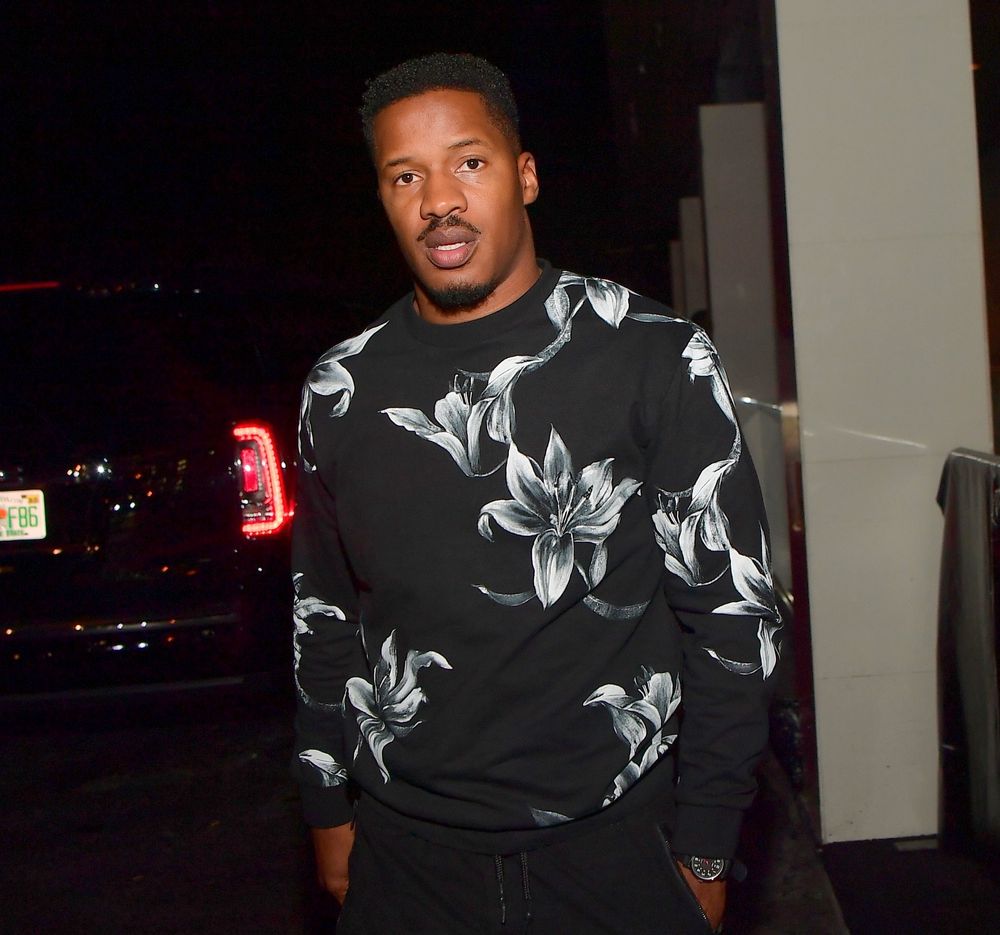On today’s episode of Men Who Don’t Stand For Shit, Selma actor David Oyelowo threw on his cape, reached down from the burning star of his career, and advocated for Nate Parker to direct his Sugar Ray Robinson biopic, Sweet Thunder. You may remember Parker for his 2016 period film, The Birth of a Nation, which chronicled the Nat Turner-led rebellion of enslaved people in 1831. More likely, though, you remember the fact that the movie led to the resurfacing of Parker’s 1999 sexual assault case — to which Parker responded in a manner that many perceived as flippant, insensitive, and remorseless. He’s been working to repair his public goodwill since, and Oyelowo is lending the worth of his co-sign for the cause.
Oyelowo fashions his alliance with Parker as a moment of meaningful solidarity between Black men — while he’s not Hollywood’s biggest star, he’s a respected actor with a strong network of Black British and American creatives in his Rolodex. If Parker is going to make a resurgence, it’s going to be with the stamp of approval from men like Oyelowo. But what does a showcase of solidarity actually do if it hasn’t been earned by a meaningful act of contrition or restitution?
Let’s rewind the record to the sexual allegations, which unfolded while Parker was attending Pennsylvania State University. He and his classmate Jean Celestin (who later co-wrote The Birth of a Nation) were arrested and suspended from the wrestling team after a woman claimed the two men had raped her while she was inebriated. While Parker and Celestin maintained that the sex was consensual, the accuser alleged that they proceeded to stalk and harass her. When the case went to trial in 2001, only Celestin was found guilty of sexual assault — a conviction that was vacated four years later.
Oyelowo believes he’s doing Parker a favor in Hollywood, and no doubt, he is. But he’s also doing a disservice to those seeking to bring us closer to a victim-centered form of justice.
Parker’s reflections on the ordeal over the years have been distasteful. While promoting 2007’s The Great Debaters, in which he acted alongside Denzel Washington, Parker framed the situation as part of a redemptive arc, claiming, “If that hadn’t happened then, I wouldn’t be here today.” In 2016, he bumbled his way through questions about the events, showing little empathy for the accuser, even after the news broke that she had taken her own life four years earlier. Parker eventually apologized for the “tone deaf” manner in which he responded — yet, regarding the alleged assault, he maintained that his only regret was being in the situation at all “as a Christian man.”
So, what has Parker done to warrant this deliverance? For Oyelowo, it seems being a Christian is enough. In a recent conversation with Variety, the British-born actor defended his decision to enlist Parker with a sadly too familiar “we’re all sinners” routine. “There are people who are truly contrite, truly desirous to be better going forward,” he said. “[Parker’s] handling of it when it happened was wrong, and it lacked the compassion that needed to be seen.” He continued to speak about redemption and forgiveness, asking viewers to trust his “discernment” that Parker has turned from the mistakes of his past and toward the light of the Holy Ghost.
This is a bozo-ass move, especially considering that Parker has yet to publicly show such a shift (and artistically has done little to warrant this level of faith). Parker, Celestine, and Oyelowo all avow care for their community, and articulate that care through their loyalty to one another — but that loyalty never extends to demanding accountability between brothers. Oyelowo believes he’s doing Parker a favor in Hollywood, and no doubt, he is. But he’s also doing a disservice to those seeking to bring us closer to a victim-centered form of justice.
Things get more complicated. The film Oyelowo is currently promoting, The Water Man, was produced by Oprah Winfrey, who Parker rebuffed in 2016 after she offered to help guide him through his ill-fated promotional run. Winfrey has been perhaps the most influential figure in Oyelowo’s career, helping him land the role of Dr. Martin Luther King Jr. in Selma. It’s not hard to imagine that aligning with Parker could be seen as disrespectful to an ally and business partner. It’s even less hard to imagine that it could be seen as disrespectful to sexual assault survivors.
There’s little reason to believe that Parker’s career can’t see new life. Our society already actively dismisses victims of sexual violence and offers men redemption for less than what Parker has offered. But without real public and continuous acts of contrition — including attempting to offer restitution to his accuser’s family and the wider body of survivors across the world — giving him a high-ticket directing job isn’t a sign of progress or humanity. It’s just another reminder that Black men, out of some silly notion of racial or gender loyalty, will act with blithe disregard for survivors of sexual violence, many of whom are Black women and men. And there really isn’t any compassion in that.
